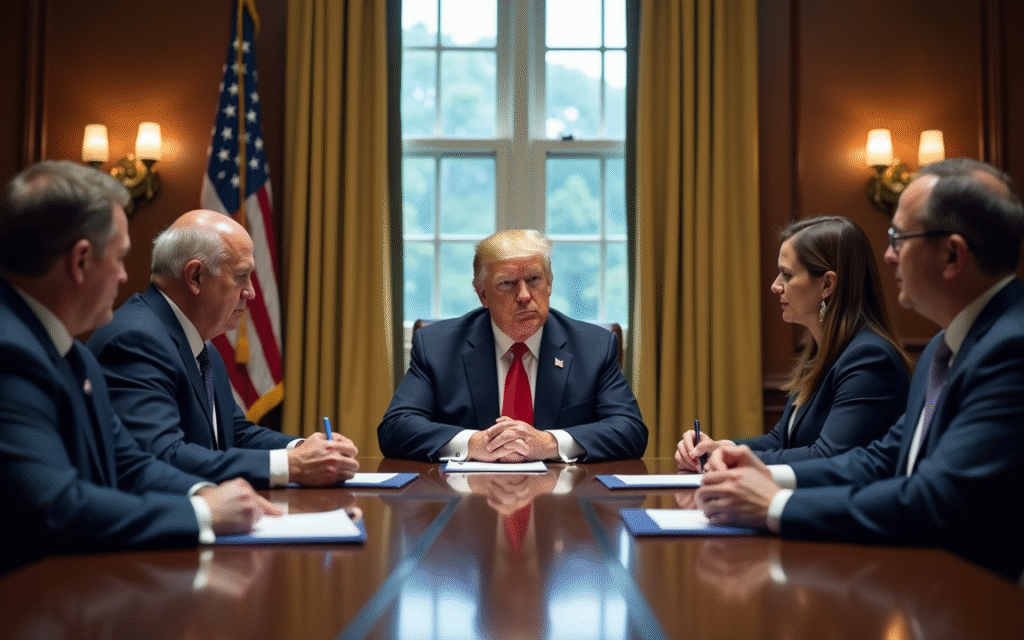The CEO of Coinbase is “optimistic” about the Senate passing Stablecoin law soon despite recent set-ups.
The Senate’s main vote on the bill failed last week due to democratic concerns, including Trump’s potential benefits.
Coinbase is set up to participate in the S&P 500. This is what Armstrong calls “Crypto’s Here To Stay.”
Coinbase CEO Brian Armstrong shared a sense of hope on Wednesday about the potential passage of the Landmark Stabilization Act in the US Senate, perhaps as early as this week.
His remarks came even when lawmakers were forced to step up negotiations as the bill faced important headwinds and recent set-offs.
Speaking to Yahoo Finance from Capitol Hill on Wednesday, Armstrong spoke in a cheerful tone. “I’m actually pretty optimistic that this bill can be completed,” he said.
“There’s a lot of urgency on each side of the aisle to see this happen.”
This optimism persists despite a well-known vote on the much-anticipated law that has collapsed last week.
Some Democrats came after Trump and his family raised concerns about how they could benefit from cryptocurrencies designed to maintain stable value by being locked into the proposed rules of Stubcoin (other assets, usually the US dollar).
The path to regulation is not smooth.
Beyond specific concerns about the potential benefits of prominent figures, other objections have emerged, leading to questions about Money Laundering Anti-Money Laundering (AML) regulations, consumer protection measures, and whether individuals close to government officials should be allowed to own or benefit from these digital assets.
This confluence of concern led to a scheduled vote last Thursday, failing to secure the 60 votes needed to pass in the Senate.
Crypto’s mainstream push and Coinbase milestone
This interest is undoubtedly high for the cryptocurrency industry, and the Stubcoin bill looks at it alongside another market structure bill that is being considered as a critical step towards Washington’s wider mainstream acceptance and a more favorable regulatory environment.
Interestingly, President Trump himself is actively involved through various financial ventures, while advocating for new regulations for the sector.
Coinbase, the largest cryptocurrency exchange in the United States, is a prime example of Crypto’s increasing integration into traditional finance.
With this key marker of acceptance, the company is scheduled to join the prestigious S&P 500 Index on Monday, replacing Discover, which was recently acquired by Capital One.
Armstrong sees this as a key moment. “Coinbase joining the S&P 500 means that Crypto will stay here,” he insisted.
It’s on everyone’s 401 (k). Everyone will be encrypted, at least indirectly, via Coinbase. It is also a symbol of Crypto’s updating its financial system.
Tug of War: Industry Interests and Regulatory Concerns
Legislative push for stubcoin is not without its competitive interests with its detractors.
The US banking industry has been actively lobbying to avoid creating loopholes that allow crypto companies to offer bank-like products without complying with the strict regulations imposed on traditional banks.
The key point of the argument is that their demands for the language explicitly prevent US Stablecoin publishers and intermediaries from providing interest to their holding customers.
Armstrong opposed this particular restriction, arguing that the bill should not prohibit the payment of interest on Stablecoin assets, highlighting the need for a level playing field for competition.
“We believe that governments should not actually be protecting against one industry and another,” Armstrong said.
They should expose clear rules and have a level playing field for competition.
He also expressed his desire to see the anti-money laundering laws be overly extended and include non-financial services such as the Decentralized Financial (DEFI) protocol.
Armstrong maintained an open stance to address the possibility that traditional banks would issue their own stubcoins if the law allowed them.
“Crypto is a technology that updates the financial system and we hope that all banks, fintech companies and all payment companies will be integrated,” he said.
Looking further, Armstrong imagined a future in which “the majority of all the payments in the economy at a certain point will be carried out in Stablecoin Rails.”
Regarding Coinbase’s own operational strategy, Armstrong has shown that it is unlikely that we will apply for a banking license based on current legislative proposals, as it is not a requirement.
“We don’t want to pursue that either,” he explained.
But obviously, if the law changed anything, we could always consider it.


